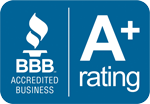As inflation continues to bite, more Americans are under severe financial stress. According to the Fed’s “Economic Well-Being of U.S. Households in 2022” survey, 37% of adults do not have enough funds to even cover a $400 emergency expense.
On top of that, credit card debt is starting to creep up again, surpassing $1 trillion for the first time in 2023. Also, many people do not have a financial plan for their retirement and about one-third of Americans will be solely reliant on Social Security for income in their golden years.
These statistics paint a picture of increasing financial distress, highlighting the need for many people to take charge of their financial lives. Here are a few ways to get started.
Make a budget and a plan
This is a basic money management tool that most people overlook. By putting together a budget of all your monthly expenses, you can clearly see how you are spending your money and how much (or little) you are saving. By having a clear view of where your money is going, you can adjust your spending to accommodate your financial goals.
Besides budgeting, you should have a plan for both saving money and investing for retirement. The plan should include goals like how much you want to save for retirement and how you will get there.
You should revisit the plan annually to track your performance and whether you are staying on track to realize your short- and long-term financial goals.
Build a safety net
One of the keys to a stable financial life is having enough cash on hand for emergency expenses so you don’t have to borrow on your credit card to pay for them.
You have to be patient when building your emergency fund. Initially focus on building it up enough to have three to six months of your current living expenses set aside.
Pay down debt
Debt puts a major strain on your ability to save, so you should focus on paying off any outstanding debt you have. Focus first on making extra payments on loans or credit cards with the highest rates.
Save for retirement
Try to set aside at least 10% of your gross salary in a retirement account like a 401(k) plan or IRA. If you have a 401(k) plan through your employer, make sure to set aside enough of your paycheck to qualify for any matching contributions your employer may offer.
Make saving a priority
To ensure that you save money, your bank may let you schedule regular savings account transfers from your checking account, or divert a portion of each paycheck to your savings account.
You choose how much and how often you want to transfer funds.
The takeaway
To get control of your finances, the key is discipline. You will need to be disciplined enough to work on a budget and a financial plan, and to stick to those plans.
As for your financial plan, we can help. We have years of experience helping our clients set up a financial plan that allows them to create a strong foundation for their future.




